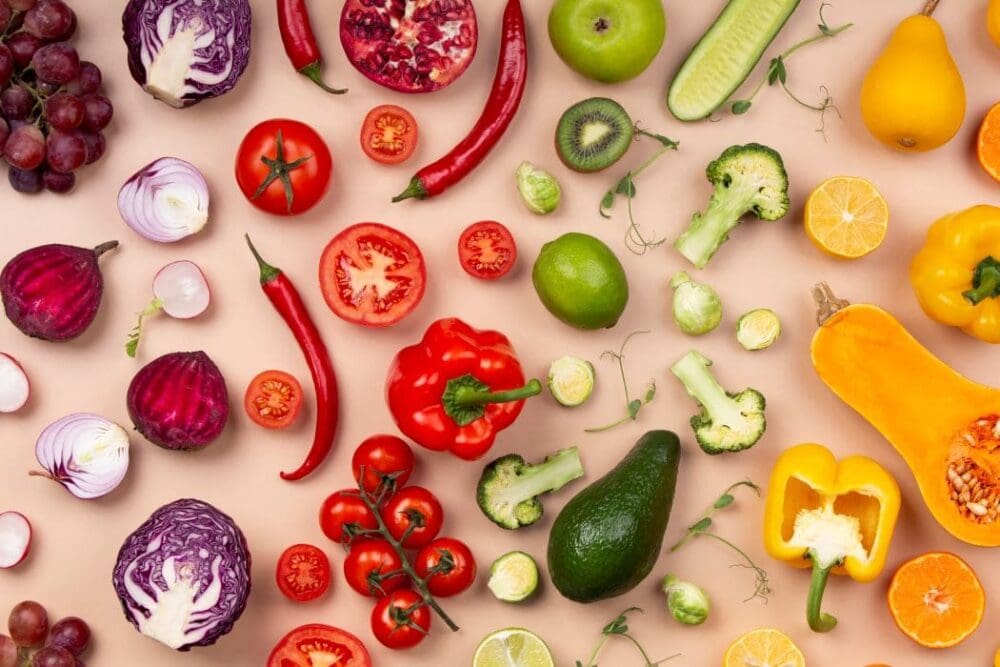Planet-warming greenhouse gas emissions associated with the global food supply chains induced by diets could fall by 17% if people change their food choices towards more plant-based diets, a new study reveals.
Researchers believe that a currently over-consuming 56.9% of the global population would save 32.4% of global dietary emissions by changing their diet to the planetary health diet proposed by the EAT-Lancet Commission.
Publishing their findings today in Nature Climate Change, an international group of researchers note that a diet switch to the planetary health diet would balance the 15.4% increase in global dietary emissions from currently under-consuming populations (43.1% of the global population) moving toward healthier diets.
Within countries, consumer groups with higher expenditures generally cause more dietary emissions due to higher red meat and dairy intake. This study shows that affluent countries consume high-emission diets but display relatively lower levels of inequality, while many poor countries tend to have diets with lower emissions but higher levels of inequality.
Corresponding author, Dr Yuli Shan, from the University of Birmingham, commented: “Compared to plant-based products, animal-based products show greater potential for reducing emissions. We should look to reduce over-consumption of emission-intensive products in affluent countries, such as beef in Australia and the US especially for wealthy consumer groups who are overconsuming, which would help to achieve significant health and climate benefits.”
The researchers say that introducing incentives, such as carbon pricing, eco-labeling, and expanding the availability of less emission-intensive products such as vegetarian foods can encourage consumers to make dietary changes.
A well-designed food environment can reshape residents’ dietary patterns and parallel development of urban planning and infrastructure can help to reduce the time and financial barriers stopping people from adopting healthier diets.
However, the experts note that in countries such as Mongolia, where diets heavily rely on red meat and dairy products due to a traditional nomadic lifestyle, diet shifts may not be feasible, but there is a need to improve national nutritional education.
Corresponding author, Prof. Klaus Hubacek from the University of Groningen, stated: “Low-income countries face greater challenges in reaching healthier diets, with more than 1.5 billion low-income populations worldwide unable to afford the cost of the planetary health diet. Diet shifts need increased food consumption, but Sub-Saharan Africa, as well as South and Southeast Asia, have experienced stagnating agriculture production efficiency for decades and cannot produce nor afford to import the required food.
He continued: “Agricultural efficiency must increase through various measures such as crop and soil management techniques and introduction of high-yielding crop varieties. But the proportions of nutrient-rich products in food imports must increase – alongside a reduction in restrictive trade policies which tend to raise food prices.”
The researchers note that poor populations often opt for lower-cost, calorie-dense foods with less nutritional benefit. High cost and low affordability remain the largest barriers for these individuals to select healthier diets – meaning that policy efforts must focus on making food more affordable and accessible, especially for lower expenditure groups.
The study evaluates the unequal distribution of dietary emissions (including land-use and beyond-farm emissions) from 140 food products in 139 countries or areas, covering 95% of the global population. It uncovers the extent of inequality of dietary emissions within countries based on detailed expenditure data.
The first author, Yanxian Li, a PhD student at the University of Groningen added “The objective of the diet shift scenario is to assess the potential implications of emission mitigation of the food system resulting from changing consumer choices instead of forcing everyone to adopt the same diet.”
The composition of global food production would need to change considerably to adapt to the substantial changes in demand if the meat-to-plant pathway is to be followed.
Diet shifts would need the global supply (in calorie content) of red meat to decrease by 81%, all sugars by 72%, tubers by 76%, and grains by 50%, while that of legumes and nuts increase by 438%, added fats by 62%, and vegetables and fruits by 28%
Changed food demand could cause fluctuating prices of agricultural products and land in global markets, triggering spillover effects between different food categories or to other non-food sectors – such as stimulating biofuel production – and partly offsetting the benefits of diet shifts.
Journal Reference:
Li, Y., He, P., Shan, Y., Li, Y., Hang, Y., Shao, S., Ruzzenenti, F., & Hubacek, K., ‘Reducing climate change impacts from the global food system through diet shifts’, Nature Climate Change (2024). DOI: 10.1038/s41558-024-02084-1 | https://doi.org/10.1038/s41558-024-02084-1
Article Source:
Press Release/Material by University of Birmingham
Featured image credit: Freepik




